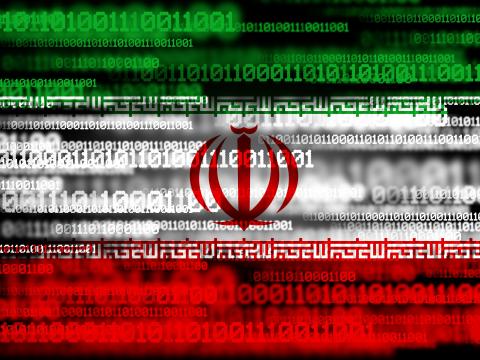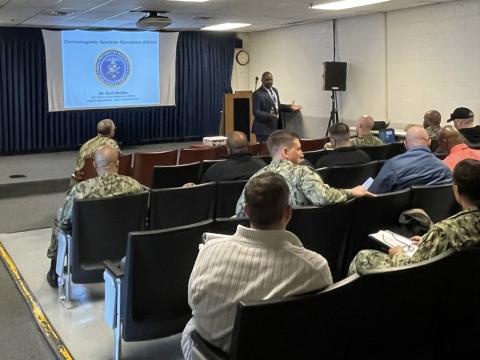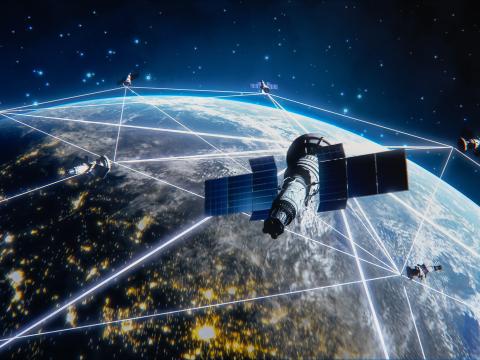The Information Age is Changing the Metaphysics of Intelligence
Given the unknowns about whether the world will end on 21 December as foretold by the Mayan Calendar or if the US government will find itself mired at the bottom of “Fiscal Cliff Washington” come New Year’s Day, any discussion about what will hold the Intelligence Community’s (IC) attention in 2013 seems premature. However, despite the notoriety of both of these “black swans,” I remain unabashedly optimistic the Mayan Astrologers have miscalculated and that the IC can muddle through 2013 on $65 billion even if most of it is borrowed money.
Before we get into any soothsaying for 2013 we probably should check my homework on this subject for 2012 when I fearlessly predicted six things that I thought would demand the IC’s attention.
- Continued political unrest in the Arab World
- Economic crisis in Europe
- Increasing military activity in the Persian Gulf
- Ungovernable regions in Mexico adjacent to the US
- China’s reaction to America’s “Asian Pivot”
- Head of state changes (US, France, China and Russia)
Given the way things emerged in 2012 I am more than inclined to “double down” on these six again for 2013 with the addition of North Korea conducting some type of nuclear test that will forge or test relationships in Northeast Asia. At this point I am comfortable assessing that Russia’s Putin and France’s Hollande will be reactors vice shapers of world events, but China’s Xi Jinping will need to use events in North Korea and the maritime territorial disputes in the South China Sea to show he is capable of protecting China’s interests as the US “rebalances” toward Asia.
Beyond the horrific elementary school deaths in Newtown, Connecticut, the most disturbing recent developments have been in Syria where the press has been reporting increased activity around the Assad regime’s chemical weapons stockpiles and the use of conventionally armed SCUD missiles in terror attacks on the Syrian rebels. As a result, Turkey has requested and NATO has responded by deploying PATRIOT Anti-Missile Batteries to the Turkish/Syrian borders. While not inevitable, a violent end to the Assad regime in 2013 is something I am expecting - - - but with trepidation about what will follow.
Events in Libya and Egypt tell us what to expect in Syria: a weak interim central government trying to manage near civil war conditions between the army and opposition groups beholden to Al Qaeda, Hamas, Iran, the Kurds, etc. with control of chemical arsenals in doubt. Intervention on behalf of its clients from Iran, Al Qaeda, and “Kurdistan” seems beyond the theoretical while Turkey and Israel will resist any internal Syrian conflict threatening their security as well as radicals controlling chemical weapons. All of this will likely unfold as Egypt remains threatened by its own internal radical and conservative elements vying for control in Cairo.
A corollary effect of this violent instability in Syria and Egypt will surely be no meaningful progress on an Israeli/Palestinian Peace Agreement in 2013.
Perhaps more positively, I expect violence in Afghanistan to dramatically wind down in 2013 because “pacification” is in the interest of the Karzahi Government, the Taliban, and ISAF. ISAF will not be seeking military action as it looks to show that it has been successful in its mission to stabilize Afghanistan so it won’t be a breeding ground for radical jihadists after withdrawing combat forces in 2014. Karzahi needs violence to recede so he can claim legitimacy to govern without ISAF muscle behind him. The Taliban, of course, do not want to do anything that will cause NATO to reconsider its decision to pull ISAF out of Afghanistan during the course of 2013. Sounds like a quiet year so things can return to how they were in Afghanistan in the late 1990s
Just based on the few topics covered here it’s easy to say that the IC will face an even more challenging strategic landscape in 2013 based on the breadth and variety of issues likely to impact US national security issues. It also seems increasingly clear to me that in today’s globalized, information rich, connected info sphere that smart phones have more influence over what political regimes do than AK-47s. If this is so, then refining intelligence from mining volumes of readily available information will be more important than a matrix of expensive classified collection systems to the IC being able to understand foreign events and capabilities so it can inform policy formulation and warn before threats to US interests become manifest. INSA‘s recently released paper “Expectations of Intelligence in the Information Age” (http://issuu.com/insalliance/docs/rebalanceexpectations), which I was peripherally involved with producing, makes this point forcefully and eloquently.
At its core “Expectations” is particularly relevant for the IC understanding all the macro issues I see it being asked to deal with in 2013, but it also describes how the contours of the information age are changing the very metaphysics of what intelligence is.
That’s what I think; what do you think?




Comment
Posted 12/18/2012
Posted 12/18/2012
Comments